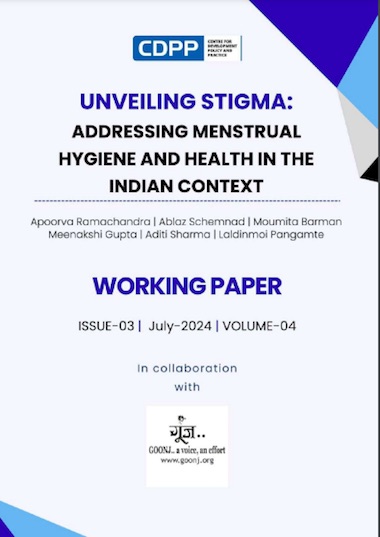
This paper tries to bring out the critical importance of addressing menstrual health and hygiene by considering its significant impact on individuals' well-being, societal norms, and environmental sustainability. It highlights how societal norms, cultural practices, and institutional biases hinder access to necessary care and emphasises the need for a comprehensive approach that goes beyond hygiene issues to encompass social, psychological, and gender-diverse needs. Utilising data from the National Family Health Surveys (NFHS), it discusses the current state of menstrual health and hygiene in India, noting positive shifts in societal attitudes and product usage while also acknowledging persistent challenges like inadequate access to WASH facilities. Moreover, the paper delves into the critical issue of menstrual waste management, stressing the environmental and health risks associated with improper disposal practices. It discusses various disposal techniques and the need for comprehensive strategies to promote proper waste management, destigmatise menstruation, and uphold the dignity of sanitation workers. Additionally, government initiatives and policies aimed at improving menstrual health in India are discussed, such as the Draft Menstrual Hygiene Policy. It acknowledges the strengths of the policy while addressing some limitations and challenges in implementation. Additionally, the paper traces how Goonj's initiative of "Not just a piece of cloth" has broken many menstrual challenges. Overall, the paper places an emphasis on the importance of broadening the conversation surrounding menstrual health and hygiene to include experiential aspects, cultural stigmas, and the needs of gender-diverse menstruators. It highlights the need for comprehensive support and sustainable waste management practices to prioritise health, dignity, and environmental concerns.
Menstrual Hygiene, Dignity, Menstrual Waste, Stigma, Sanitary Pads, Menstrual Waste, Cloth Pads
